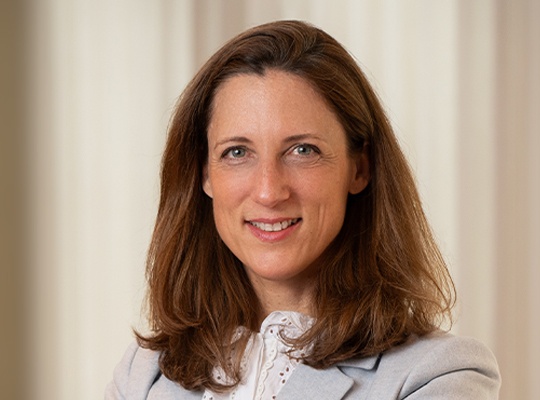The Servier Judgment: A Breath of Fresh Air for Pharmaceutical Companies?
On 12 December 2018, the General Court (“Court”) partially annulled the European Commission’s decision of 9 July 2014 in the Servier case and consequently reduced Servier’s fine by more than 30%, from €330.99 million to €228.32 million. After the Lundbeck judgment of 8 September 2016, this second decision on pay for delay cases provides useful guidance to pharmaceutical companies on the assessment of patent settlement agreements under European competition law.
Key Takeaways:
- When a medicine is not objectively recognized or perceived by practitioners as being superior to other drugs with the same therapeutic indication, the market definition must rely on both a quantitative (price) analysis and qualitative analysis, taking into account a series of factors other than the price such as the therapeutic indications, a comparison of the drugs’ efficacy, doctors’ habits, promotional efforts, etc.
- The legal consequences of the language contained in internal documents / presentations must be decided in light of other objective factors, such as the conclusions of scientific studies.
- Non-challenge and non-commercialization clauses included in patent settlement agreements can be justified under competition law unless the generic company is incentivized to accept such clauses in exchange for a reverse payment amounting to a buyout of competition.
- The combination of a settlement agreement and a license agreement to end a patent dispute is presumed valid insofar as the latter is accessory to the former and generally seen as pro-competitive; it is therefore for the Commission to establish that the level of the royalties does not reflect market conditions.
Background
French pharmaceutical company Servier developed and commercializes Perindopril, a blockbuster indicated for the treatment of cardiovascular diseases, mainly hypertension and heart failure.
Servier’s main patent, covering the API (active pharmaceutical ingredient), was registered in 1981 and expired between 2003 and 2009 depending on the Member States. In the meantime, Servier had filed various other applications for secondary patents covering notably the manufacturing process of the API, including patent No. 947, delivered in 2004.
More than 10 generic companies, which were preparing their market entry or had decided to launch at risk, challenged the validity of patent No. 947 before the European Patent Office (EPO) and certain national courts (in particular in the UK and the Netherlands).
These actions eventually led to several patent settlement agreements between Servier and five generic companies (namely Niche/Unichem, Matrix (now part of Mylan), Teva, Krka and Lupin) which had already taken significant steps to develop generic versions of Perindopril and/or had launched at risk. Pursuant to these agreements, the generic companies agreed to refrain from competing with Servier until the expiration of patent No. 947 in exchange for cash settlements totaling €110 million.
In November 2008, in the context of its sector inquiry into the pharmaceutical sector, the European Commission decided to conduct an in-depth review of these settlement agreements. In July 2014, the Commission found that, by significantly delaying the entry of generic versions of Perindopril on the market, these agreements were restrictive of competition under Article 101 of the Treaty on the Functioning of the European Union (“TFEU”). In addition, the Commission found that Servier had implemented a global strategy consisting principally of acquiring any possible technology which was a source of competition, thereby abusing its dominant position on the market for Perindopril, in violation of Article 102 TFEU. Accordingly, the Commission imposed fines on Servier and the five generic companies totaling €427.7 million, including €330.99 million on Servier.
The Court, while confirming the general approach followed by the Commission for assessing the anticompetitive nature of the settlement agreements, partially annulled the latter’s decision on the grounds that it had improperly (i) concluded to the existence of an abuse of dominant position on the part of Servier and (ii) qualified the Krka agreement as pay for delay.
The Court revisits the market definition for Perindopril and consequently annuls the Commission’s findings under Article 102 TFEU
The Court’s judgment constitutes a serious and unexpected setback for the Commission, which faces the annulment of its decision regarding Servier’s sanction for abuse of dominance. Indeed, following an in-depth analysis of the market characteristics, the Court concluded that the Commission had not appropriately delineated the market for Perindopril and that, consequently, Servier could not be regarded as holding a dominant position.
The Commission, consistently with previous practice when competition from generics is at stake, had narrowly defined the market at the level of the Perindopril molecule. The Court, however, concluded that the market, in the present case, was in fact wider and encompassed not only Perindopril and its generics but also all the other drugs classified as ACE inhibitors.
To reach this conclusion, the Court went beyond price competition, which was the focus of the Commission’s analysis. The Court noted that the unique characteristics of the pharmaceutical sector, which is largely influenced by doctors’ choice and less sensitive to price variations, should have led the Commission to carefully analyze the qualitative competitive constraints exerted on Servier by the other ACE inhibitors. In particular, the Court took into account the therapeutic recommendations and publications as well as the therapeutic indications and perceptions by health professionals, none of which pointed to a superiority of Perindopril as compared to other drugs with the same therapeutic indication, especially in terms of efficacy and side effects.
This innovative approach calls for several comments:
- Firstly, the Court’s approach to market definition contrasts with the view currently prevailing in the U.S. and, so far, in Europe, where functional interchangeability is often seen as secondary and rarely leads to overturn the analysis based on price constraints exerted by generics on originators. The fact that the Court conducted a detailed analysis based on all relevant evidence and resisted the temptation to take an opportunistic approach to market definition had it wished to confirm the existence of an abuse also sends a strong signal to national competition authorities that Article 102 TFEU should be strictly enforced.
- Secondly, the Court did not take into account the national regulatory constraints in the market definition, although rules on substitution might also create a significant constraint on competition between originators and generics. It thus remains to be seen how national competition authorities will implement the Court’s judgment.
- Finally, the Court minimized the importance of Servier’s internal documents, on which the Commission partly relied to isolate Perindopril from other ACE inhibitors. The Court interestingly recalls that these documents often have a marketing purpose and thus unsurprisingly tend to promote the unique characteristics of a product rather than necessarily objectively reflecting the actual market conditions. To that extent, the Servier judgment paves the way for future discussions with competition authorities on the interpretation of internal documents and market definition, both with respect to the assessment of anticompetitive practices and mergers.
The Court confirms that pay for delay agreements can qualify as “by object” restrictions of competition under Article 101 TFEU
In 2016, in the Lundbeck judgment, the Court approved the Commission’s treatment of pay for delay agreements as qualifying, under certain conditions, as anticompetitive “by object”, without the need to prove their effective or potential anticompetitive effects. The Court confirms this approach in the Servier judgement.
In particular, it explained that patent settlement agreements containing restrictions such as non-challenge and non-commercialization provisions, although they may pursue a legitimate aim, may be qualified as pay for delay – and hence, as anticompetitive under Article 101 TFEU – when three cumulative conditions are met:
i. the generic company is a potential competitor of the originator;
ii. the generic company, by recognizing the validity of the originator’s patent, agrees to refrain from entering the originator’s market, in exchange for
iii. a disproportionate payment from the originator company, in fact amounting to a buyout of competition.
Firstly, unsurprisingly, the generic manufacturers were all considered as potential competitors of Servier. In that respect, the Court insists on the fact that the mere existence of an intellectual property right cannot be regarded as a legal obstacle to competition, especially in the pharmaceutical sector, where bringing a new product to the market requires several years. In that context, it is not uncommon for generic companies to start taking steps to commercialize their product long before the expiry of the patent, in order to be ready at that stage.
Secondly, regarding the nature of the infringement, the Court’s reasoning is informative and should help companies refine the analysis of their patent settlement agreements.
The Court explained that non-challenge and non-commercialization clauses, which are common in settlement agreements, are, by themselves, restrictive of competition.
However, the Court acknowledged that, in the context of a litigation and potential infringement of intellectual property rights, these restrictions in fact serve the same purpose and have the same effects as a court order enforcing the validity of the originator’s patent. Thus, according to the Court, it is not the recognition of the patent validity by the generic companies that rendered the agreements with Servier illegal, but rather the fact that these companies, by accepting a disproportionate reverse payment from Servier, were incentivized to stay out of the market. In other words, what the Court sanctioned is not Servier’s defense of its intellectual property rights, but the buyout of competition through cash settlements.
After scrutiny of all the agreements, the Court concludes that a settlement agreement combined with a license agreement does not constitute a restriction of competition by object
The Court confirmed the restrictive nature of the majority of the settlement agreements concluded between Servier and the generic companies, including those comprising reverse payments but also less traditional terms such as a technology transfer or a supply deal. However, the Court concluded that the Krka agreement did not amount to pay for delay. More particularly, in 2006, Servier and Krka concluded two agreements:
iv. on the one hand, a settlement agreement pursuant to which Krka agreed to refrain from any activity infringing Servier’s patents; and
v. on the other hand, an exclusive license agreement pursuant to which Krka was granted the right to use, manufacture, promote and sell a generic version of Servier’s Perindopril encompassing the latter’s technology in certain territories.
The Court found that the combination of a patent settlement agreement and a license agreement covering the same patent did not constitute evidence of a reverse payment. On the contrary, the Court noted that the existence of the license agreement could be regarded as ancillary to the settlement agreement insofar as it has the same subject matter. In addition, it implies a payment of royalties from the generic company to the originator, which renders the possibility of a reverse payment less obvious, unless it can be demonstrated that the royalty payment is too low and thus entails a form of compensation. In the present case, the Court concluded that the level of the royalty in the Krka license agreement reflected a negotiation at arm’s length between Krka and Servier.
How can Dechert be of assistance?
Dechert has a life sciences platform combining the experience of competition, regulatory and intellectual property law experts. Our global and integrated team can thus assist you with a unique offer on all matters involving patent settlement agreements and, more generally, lifecycle management of your products.




